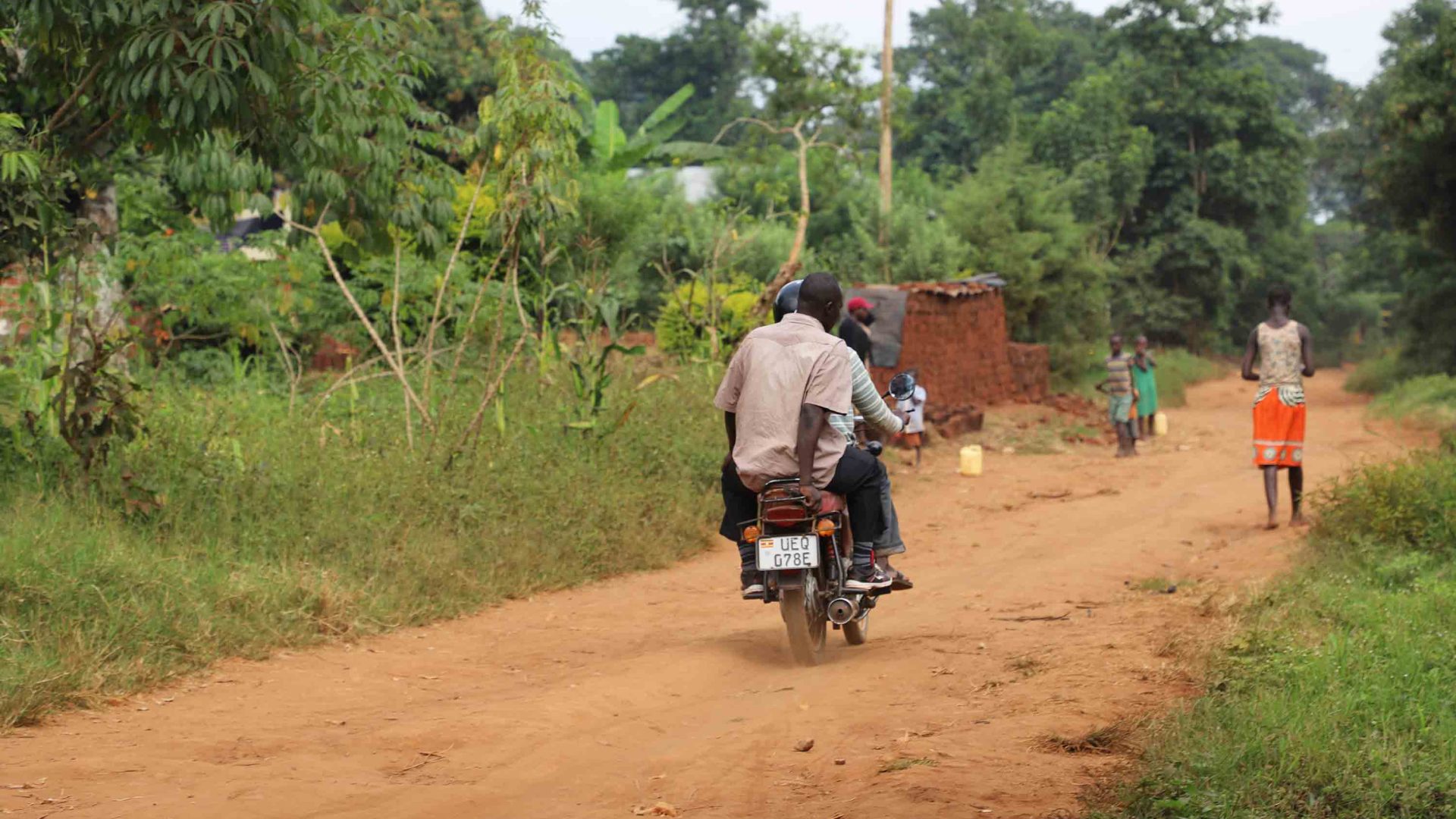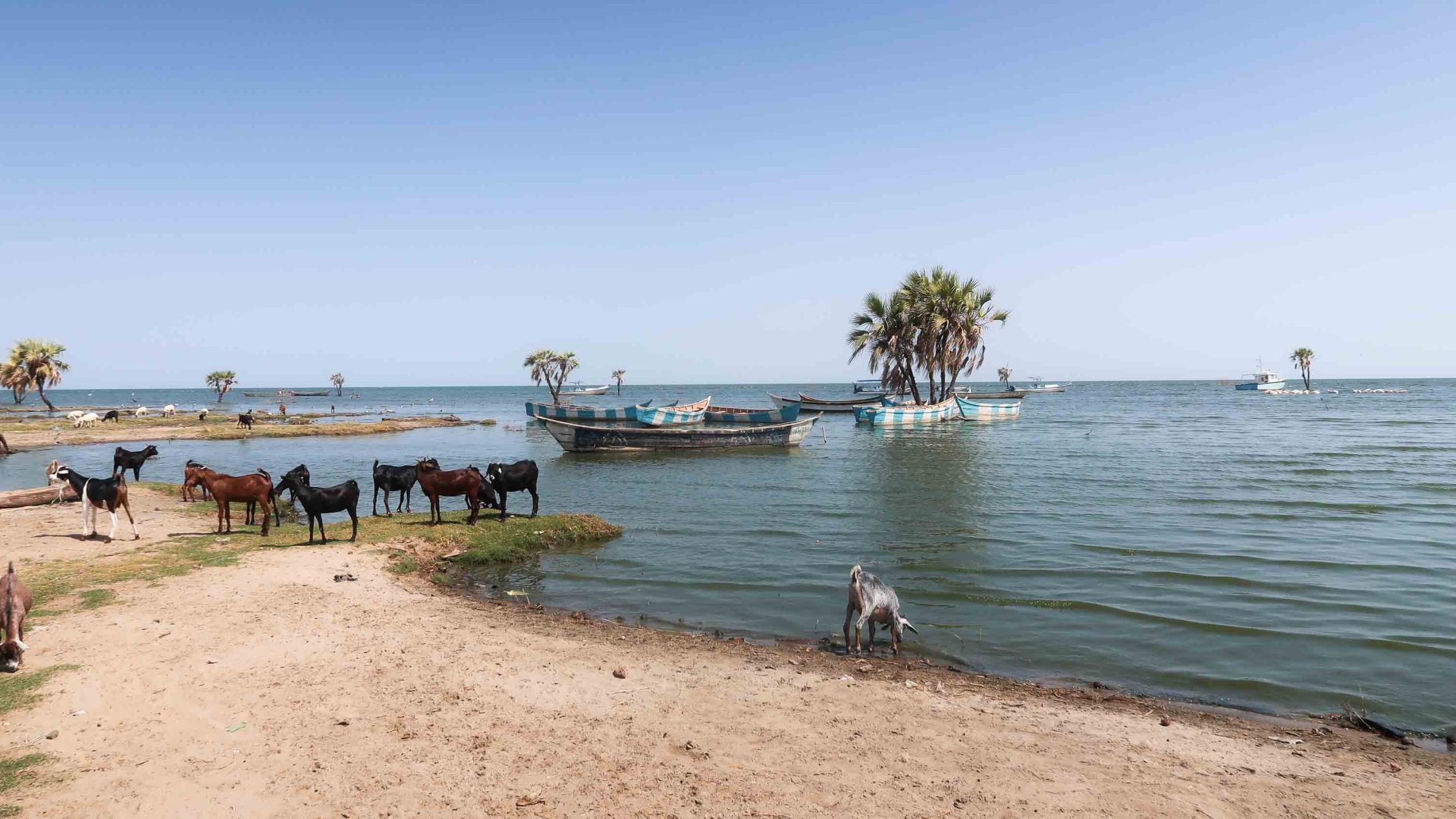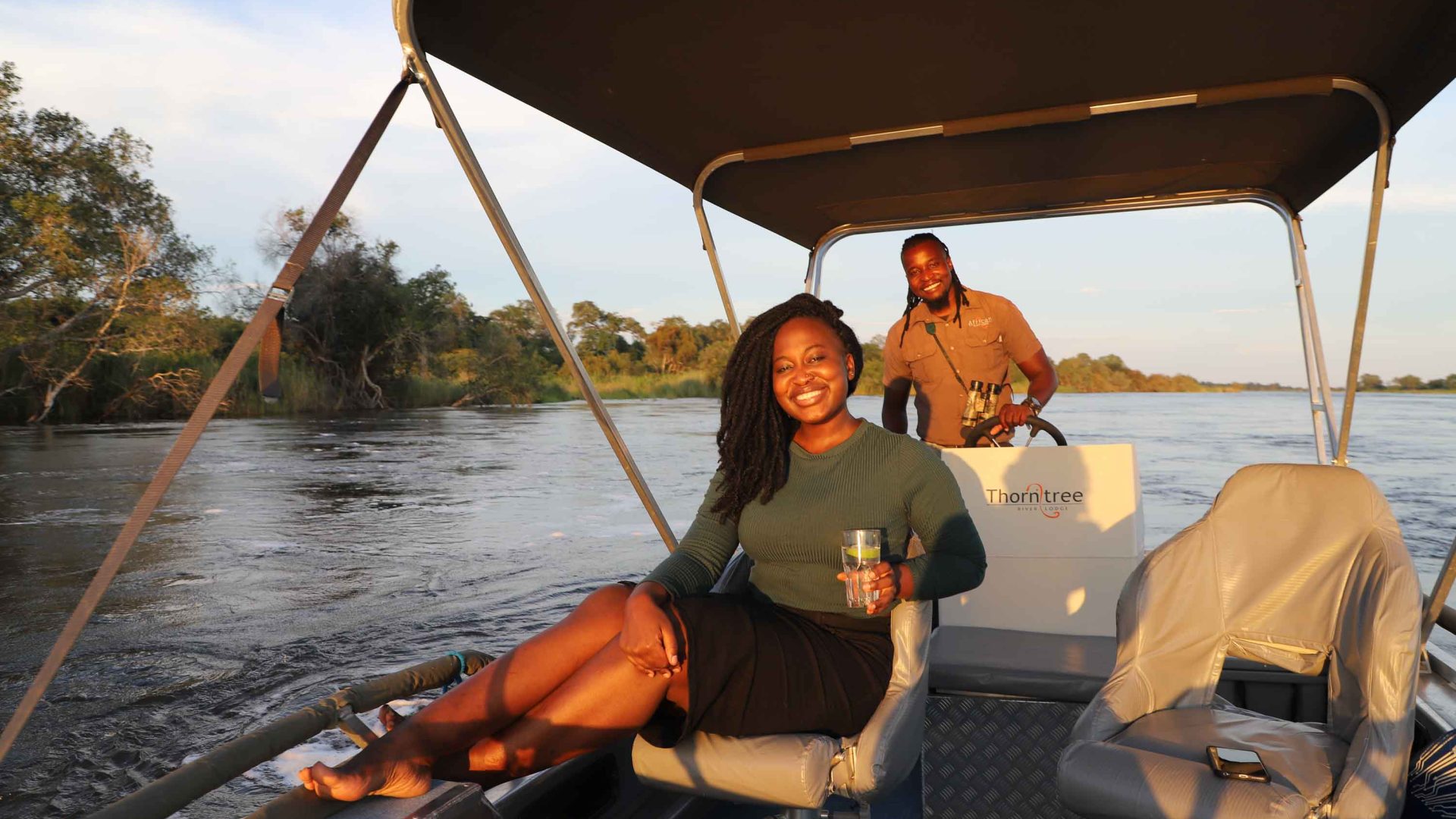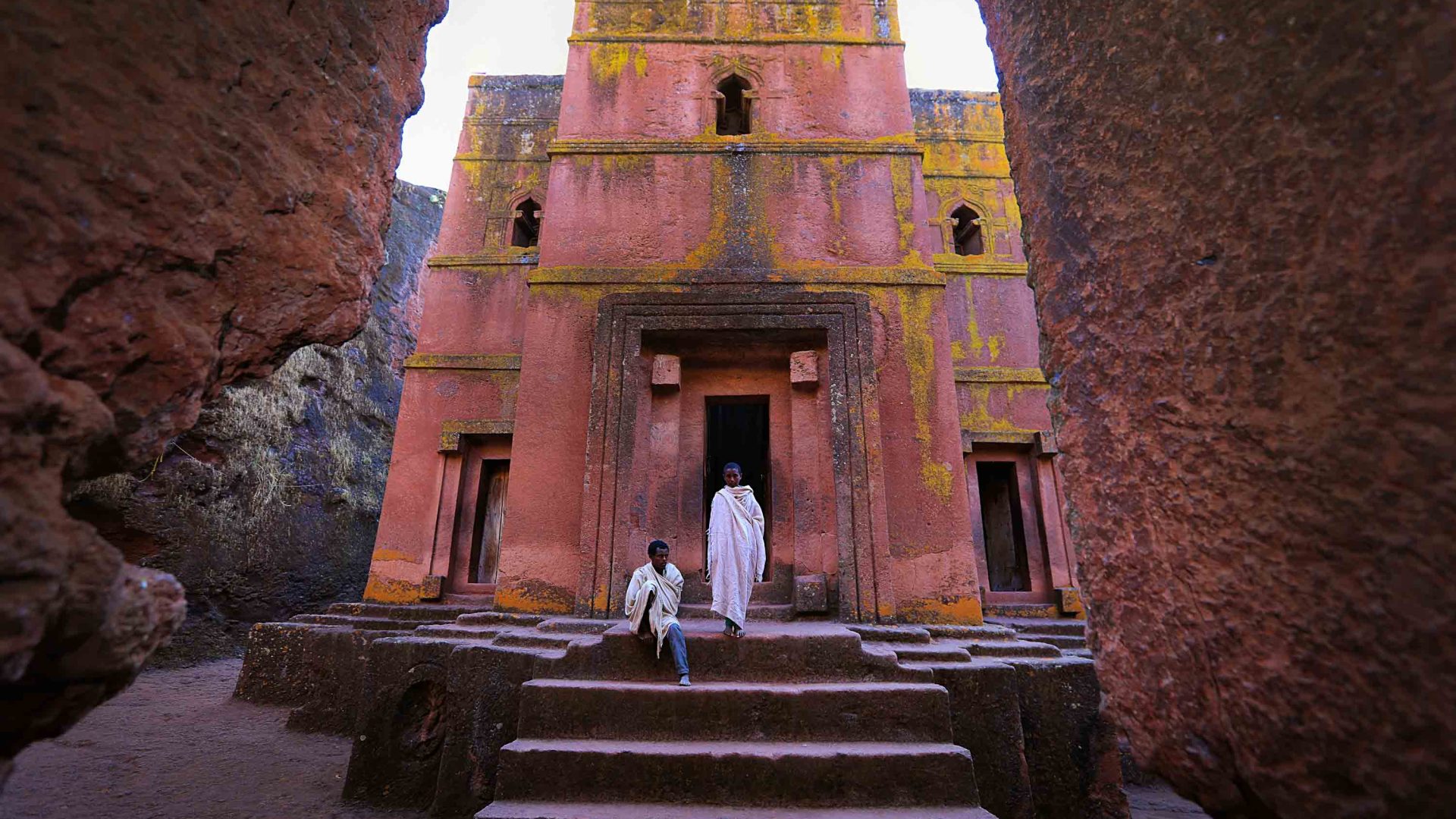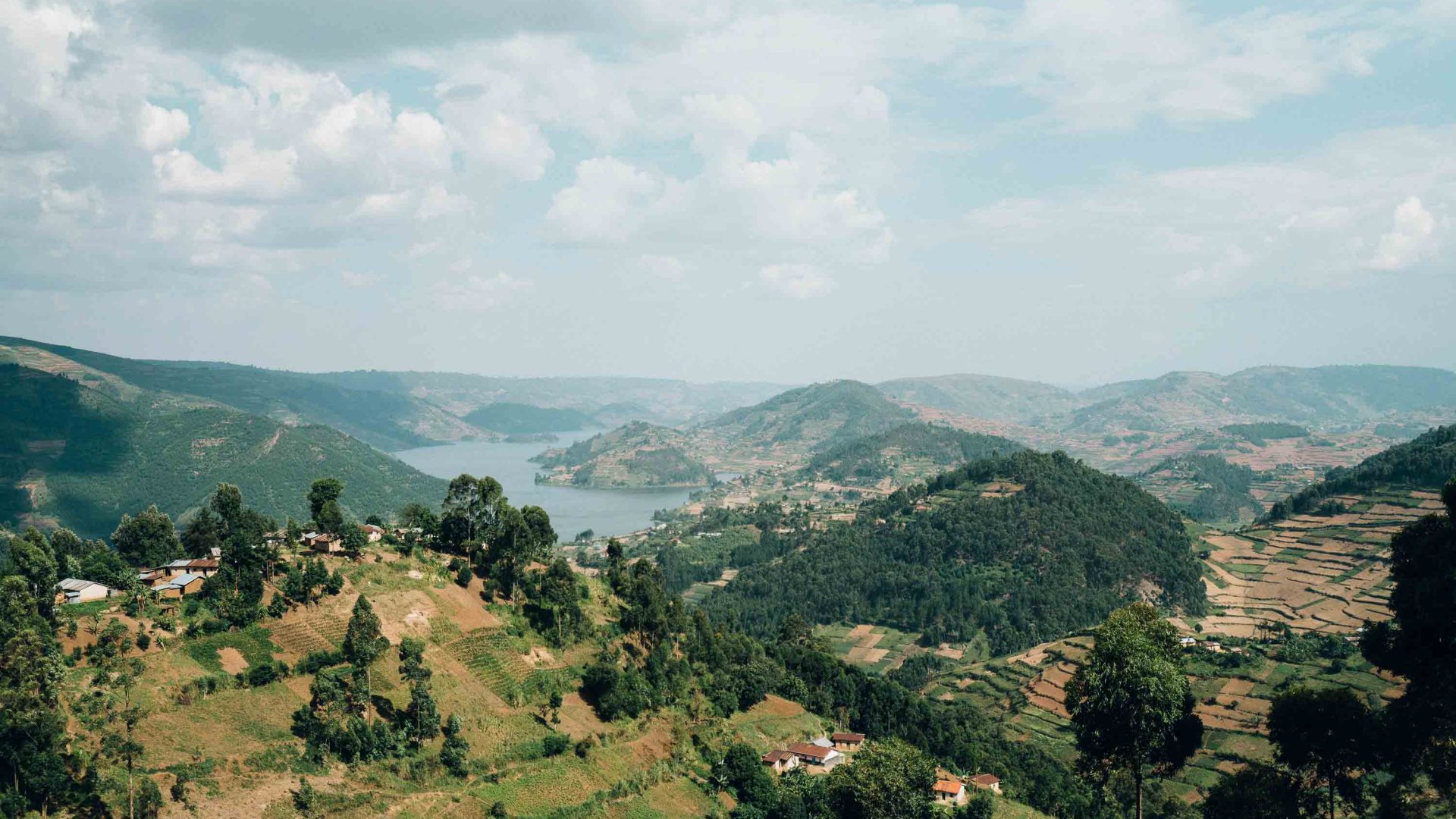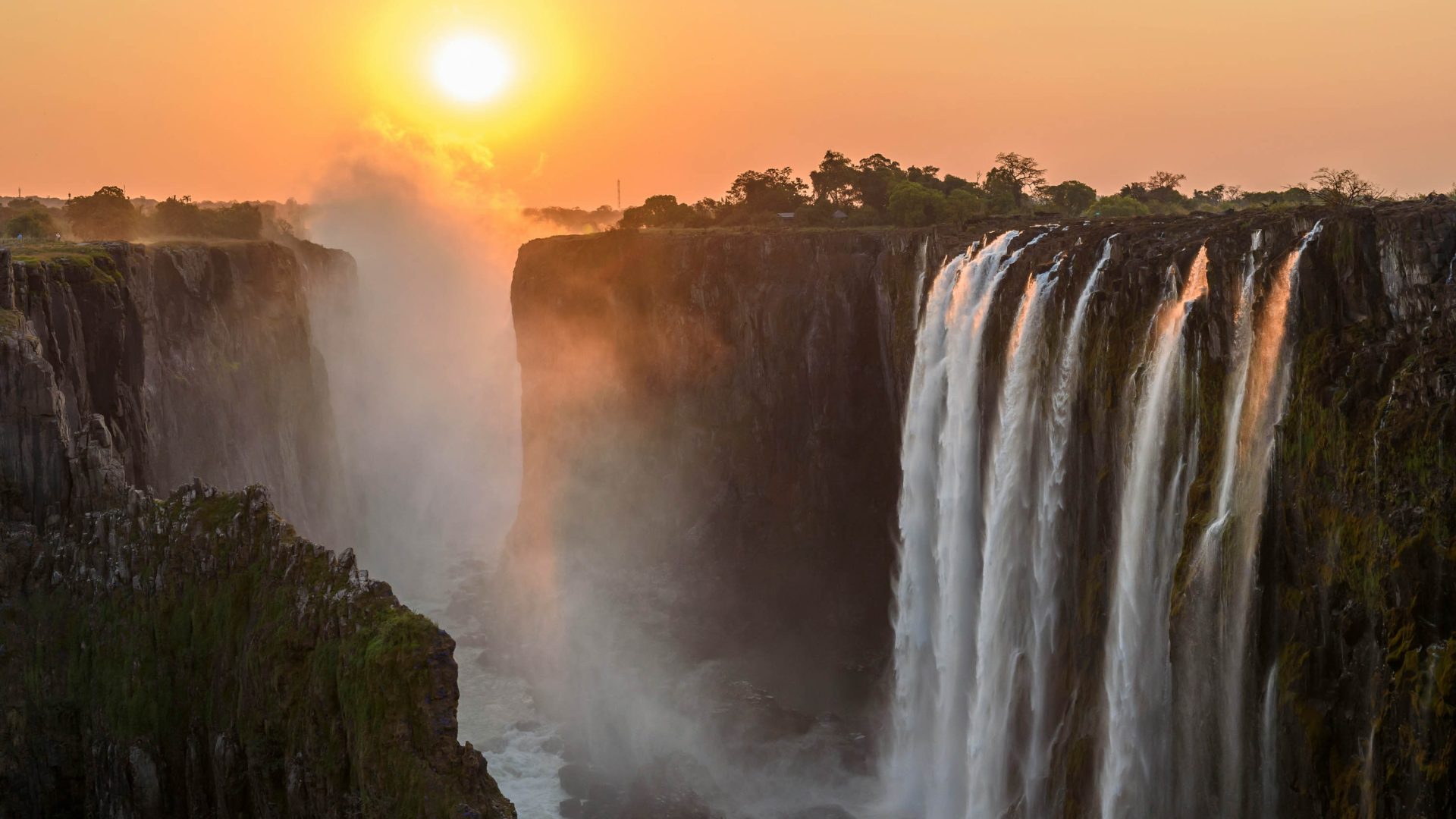I’ve backpacked through 13 African countries—here’s what I’ve learned

Traveling independently around Africa isn’t something every traveler considers, even if they’ve backpacked around Thailand, Australia or Spain. Keen backpacker, solo traveler and Kenya-based writer Wendy Watta shares her tips and tricks.
I’ve been backpacking around my home continent for 10 years. But when I’m traveling in other parts of the world, I’m often surprised at how many travelers I meet who love solo and independent travel, yet when it comes to Africa, go down the organized tour option for reasons ranging from fear and lack of knowledge to perceived cultural barriers. Of course, not all places have the same infrastructure and facilities, but navigating this continent with nothing more than a backpack and an open mind is very possible if you keep a few things in mind. Here’s how I do it.
Number one, Africa is a diverse continent of 54 countries, over a billion people and 2,000-plus languages… As soon as you’ve mastered how to say hello in Kenya, you cross over to Ethiopia and no-one understands what you’re talking about.
The landscapes are just as varied, from Namibia’s white salt pans tumbling for miles in every direction and framed by red sand dunes so huge you might as well be standing in front of Mt Kilimanjaro, to Victoria Falls where dark basalt cliffs transform a gentle river into a ferocious beast gushing down a series of dramatic gorges.
I’ve traversed several countries using public transport and generally felt safe, contrary to the image of a war-torn continent (it is over 30 million square kilometers in size, just saying) overrun by machete-wielding militia that’s often perpetuated by the media. Backpacking around this continent can be unpredictable and challenging yet remarkably rewarding, so pack your bag and buckle up.
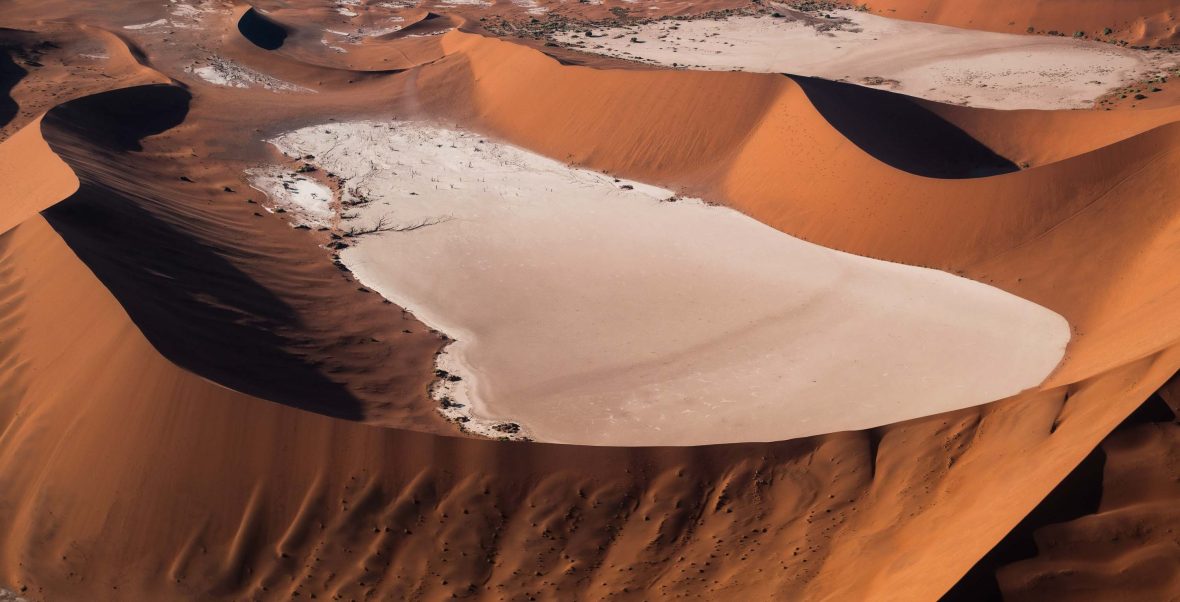
Deadvlei’s white clay pans, near the more famous salt pan of Sossusvlei, lie in a valley between the dunes of Namib-Naukluft Park. Photo: Joshua Kettle
Embrace the ‘pole pole’ way of life—but remain scam-vigilant
To get from the Kenyan capital of Nairobi to Dar es Salaam, Tanzania, we booked the front VIP seats with extra leg room in the Tahmeed bus for USD$30, and departed at 6am. I quickly dozed off, waking up somewhere in the countryside to lush landscapes and red-roofed brick houses giving way to rocky hillsides as we drove on.
The bus was clean and comfortable, and a small screen at the front was playing Tanzanian Bongo Flava and Congolese Lingala music on a loop—to travel by bus is to discover the varied entertainment across the continent. The distance was about 820 kilometers and the trip took 15 hours, largely due to the 50kph speed limit in Tanzania.
But smooth rides like this aren’t always the norm. On a different trip, by the time I made it to Kampala, Uganda, from Nairobi on the Modern Coast bus, I’d received 20 increasingly frantic texts from my mom. A trip which should have taken 13 hours took 26 hours, with the halfway mark finding us stranded somewhere on the Busia border with the male passengers stripped down to vests and shorts, knee deep in mud, trying to push the bus out of a rut. Always read updated reviews before booking, and don’t underestimate distances either.
As the saying goes, ‘there’s no hurry in Africa’. The Swahili phrase ‘pole pole’ (slowly slowly) perfectly captures the relaxed cultural attitude you need to embrace to keep your cortisol levels in check. At Mbeya Bus Terminal in Tanzania, an attendant pulls out a laminated sheet of paper with a price list: “The bus is full and leaving in the next five minutes,” he tells us. Like vultures to a carcass, we’re hounded by a group of seven touts, each trying to sell us tickets until we duck into the office for refuge.
But my gut tells me something isn’t quite right, so I leave my friend to watch over our bags while I check out the bus he mentioned. It has only three passengers, and I recognize them as the touts we met earlier. The trick makes it seem like the bus will be taking off soon so you pay for your ticket, after which you’re stuck waiting for hours. I also realize his price list is nearly three times the actual cost… Scams happen everywhere; this is one to watch out for here.
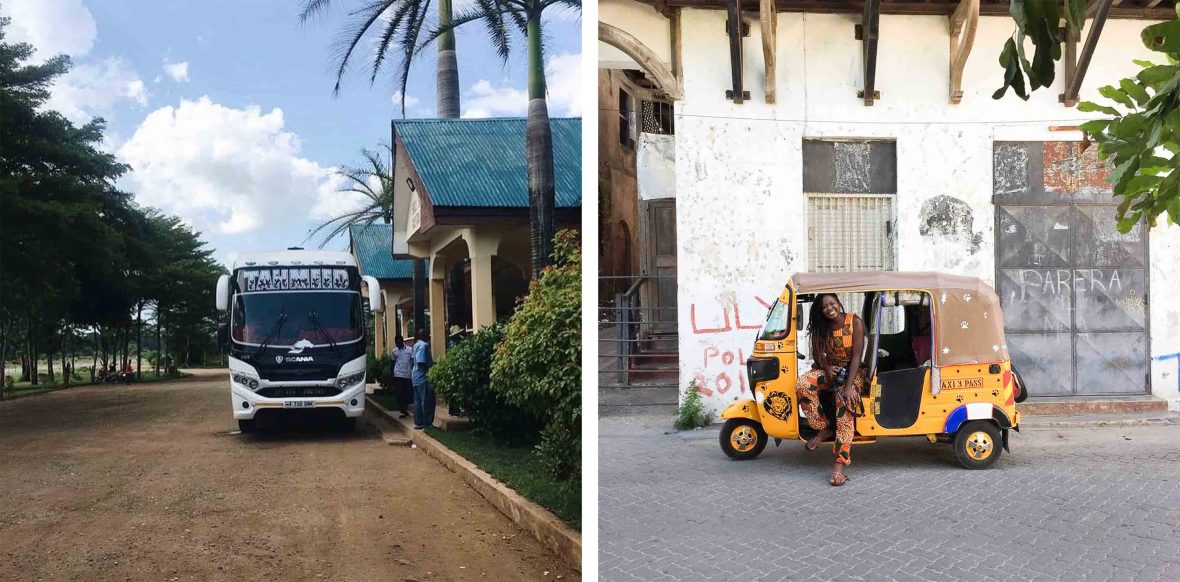
Go with the flow, says writer Wendy Watta: “We found ourselves packed onto the back of a Probox taxi, reminiscent of squeezing in extra bikinis into an already overflowing suitcase, and one passenger was holding a chicken that just wouldn’t stop clucking or flapping its wings.” Photos: Wendy Watta
It’s not a ‘cheap flights’ destination like Europe
Africa lacks the cheap flights of Europe and Southeast Asia. Getting from Nairobi to Cape Town or Lagos can cost up to USD$800, often out-of-reach for backpackers wanting to see several countries. Instead, I’ve endured long, hot, sometimes uncomfortable bus rides, with varied road conditions—the corridor from Livingstone, Zambia to Katima Mulilo, Namibia, is one of the worst I’ve ever experienced. We found ourselves packed onto the back of a Probox taxi, reminiscent of squeezing in extra bikinis into an already overflowing suitcase, and one passenger was holding a chicken that just wouldn’t stop clucking or flapping its wings.
The road was severely potholed and exhausting to rattle around in like that. And yet, it dramatically changed to smooth, paved roads as soon as we entered Namibia, the border acting like siblings drawing a chalk line in the middle of the room to keep the other’s mess at bay.
If you’re crossing Africa by land, there are no two ways about it: A border official is going to try to solicit money from you at some point from behind a window with a ‘Corruption Free Zone’ sticker.
Transport options will often include motorbike taxis (boda bodas) or tuktuks which you can hail from the side of a road then negotiate a price with the biker. There’s generally no consistent, cheap train network although where they exist e.g. between Nairobi and Mombasa, you’ll need to check and plan; the Tazara train which crosses from Tanzania into Zambia only leaves once a week.
At every border, get a local chip/SIM card, and however you exchange your money, pay attention to detail: I once had an agent throw in a few Korean Won among the Zambian Kwacha, and since the colors were similar, I didn’t realize until I reached our motel.
Motorbike taxis, or boda bodas (top) are a good way to get around to some of the sights while the writer also enjoys time by Lake Turkana in Kenya (middle), and a boat trip on the Zambezi River in Zambia (bottom). Photos: Wendy Watta
Eat when you can
Hawkers rush to bus windows at different stops, jostling to sell cheap yoghurt, roasted maize, in-season fruits, fried green bananas and skewered meat. Sometimes this is better than the oily fast food you’ll find at designated stops, so load up where you can.
Other times, you’ll sample the most delicious food you’ve ever tasted at the most unassuming restaurants. In Namibia, I had hot slivers of kapana (grilled beef) so tasty I wanted to pitch a tent there, flirt with cute local guys, learn to dance to amapiano music and never return home. In Tanzania, the chicken pilau portions were so hearty and delicious that you’d (OK, I would) discreetly unbutton your jeans and slowly work your way through the rice mountain on your plate.
In Ethiopia, the home of Arabica coffee, the tiny cups of buna (coffee) were so strong I feared I’d stay awake for a month straight, and injera (Ethiopian flatbread) was served for breakfast, lunch and dinner. Food is also a way to bond and bring together communities, so if you want to make local friends, inviting people to share a meal with you always works.
Don’t pre-book your accommodation (if you want spontaneity)
We’re in a small town in Nakonde on the Tanzania-Zambia border. I see a lot of motorbike taxis, colorful shops with walls advertising some soap or cooking oil, and pinned to telephone poles is the number of a local love doctor who can cure ailments like heartbreak, erectile dysfunction and a cheating spouse…
We walk up to a group of bikers so muscular they look like they should be tackling Connor McGregor in the UFC welterweight division rather than idly waiting for customers under the shade all day. They’re very friendly, and when we ask for the best motel in town, they recommend Izukanji Lodge and Pleasure Resorts. The word “pleasure” in its name fills me with dread and anticipation in equal measure, but pretty soon, we’re lounging poolside at a simple hotel where our room opens out to a garden, and you can catch the sunset right from bed. Sometimes, it’s worth a shot…
I personally don’t rely too much on platforms like Airbnb or Booking.com, especially for short stays. I’ve always gotten decent bed-and-breakfasts close to bus stops by asking locals, starting with bikers, to take me to the best one. When you get to more touristy towns, you can then stay at a backpacker lodge or treat yourself to a more upscale spot if your budget permits. Traveling in twos dramatically cuts accommodation costs, obviously.
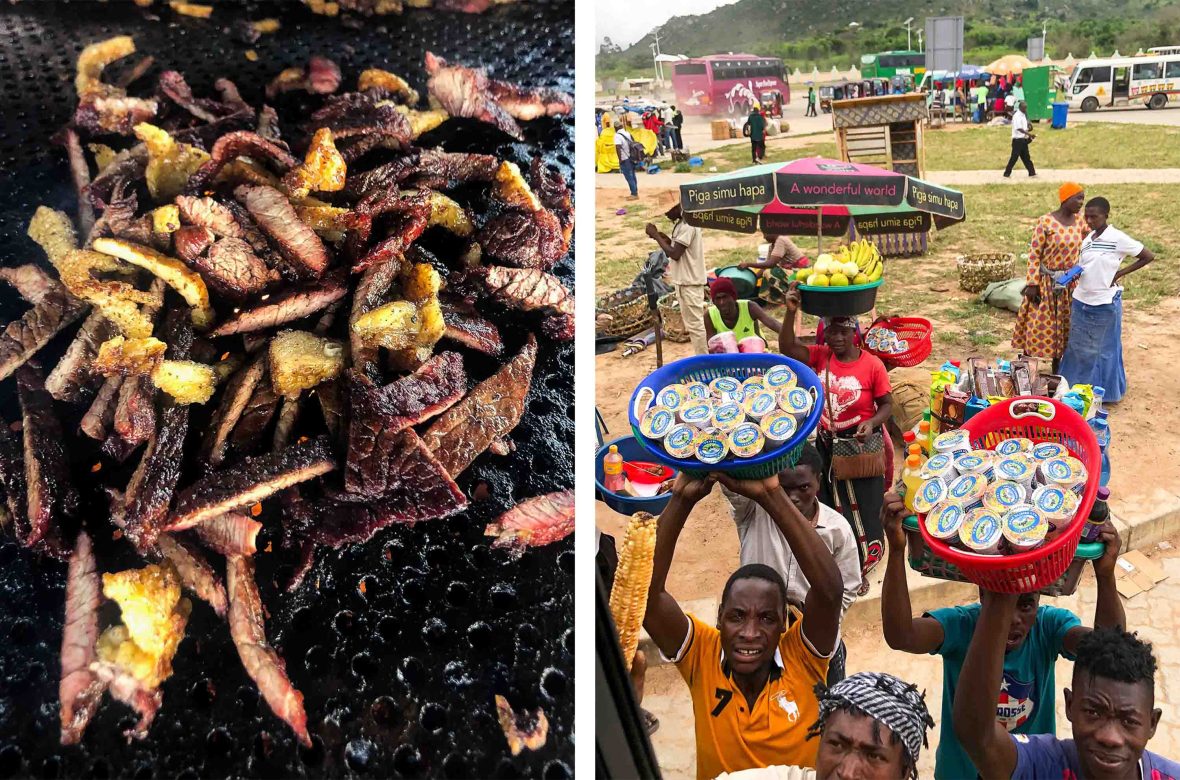
Top: The writer tucks into Kapana (grilled beef) in Namibia; Bottom: Hawkers sell yoghurt and other items through bus windows. Photos: Wendy Watta
Be prepared to pay ‘something small’
If you’re crossing Africa by land, there are no two ways about it: A border official from behind a window with a ‘Corruption Free Zone’ sticker is going to try to solicit money from you at some point. When the official is flipping through your passport and calmly says, “buy me a soda/tea,” or “pay something small,” just know you’re in the middle of a negotiation. My strategy is always to be friendly, but play dumb—and let them make the first move.
And so, I find myself sitting across from an immigration officer at an oversized desk stacked with papers, as he pretends to be typing away with two fingers at one of those old clanky vintage desktops, looking for the letters one by one on the keyboard.
Backpacking around Africa has been so rewarding. Overcoming any challenges I’ve faced has left me feeling like I can be trusted with the world outside of traveling, and being open-minded has led to unforgettable experiences.
“The last bus for the day will be leaving in 15 minutes, so you need to get out of here fast,” he tells me. He must have studied drama, this guy, I think. Then, “Where is your cholera vaccine?”
I pretend to be distracted by the fan that’s whirring noisily in the background. “Show me where it’s listed as a requirement online.”
“It’s a recent development,” he replies.
“Surely there’s a leaflet or official email or something…”
“Do you know that the bus is leaving in 15 minutes?” He’s impatient now, and leans back in his chair and crosses his arms in front of a round protruding belly. I stare at the fan in silence, as if it’s the most fascinating thing I’ve ever seen in my life. I wonder if someone will ever clean the dust that coats the white plastic plates.
When he sees I’m neither taking the bait, nor in a rush to leave, he eventually dismisses me with a wave. On the other hand, if you’re in a situation where you have no other option, or are indeed missing a document, it can sometimes be easier to ‘pay something small’.
Top: An example of the striking rock-hewn churches in Lalibela in Ethiopia; Middle: Uganda’s Lake Bunyonyi, Africa’s second deepest lake; Bottom: Victoria Falls on the border of Zambia and Zimbabwe. Top: Mulugete Wolde; Middle: Random Institute; Bottom: Sammy Wong
Be open to people and experiences
Backpacking around Africa has been so rewarding. Overcoming any challenges I’ve faced has left me feeling like I can be trusted with the world outside of traveling, and being open-minded has led to unforgettable experiences.
In January, I was celebrating Ethiopian Christmas in a small town called Lalibela famed for its rock-hewn churches and had spent the day before at a cattle market where local farmers had brought over 300 goats, sheep and cows to sell. After befriending one of the farmers, we ended up at his house the next day slow grilling fat chunks of mutton, passing around ambasha bread, and sharing a large platter of homemade food.
In Uganda, by agreeing to take a detour on a whim with friends I bumped into at a café, I spent three days wild swimming in Lake Bunyonyi, the second deepest lake in Africa, surrounded by green terraced hills and sleeping at a backpackers’ accommodation. To this day, I daydream about this spot.
Keeping an open mind has gone a long way in bringing me some of the best experiences in my life so far; and one that no guidebook could have ever prepared me for.
***
Adventure.com strives to be a low-emissions publication, and we are working to reduce our carbon emissions where possible. Emissions generated by the movements of our staff and contributors are carbon offset through our parent company, Intrepid. You can visit our sustainability page and read our Contributor Impact Guidelines for more information. While we take our commitment to people and planet seriously, we acknowledge that we still have plenty of work to do, and we welcome all feedback and suggestions from our readers. You can contact us anytime at hello@adventure.com. Please allow up to one week for a response.

Wendy Watta
Wendy Watta is a Kenyan writer and vlogger living in Nairobi, and as a digital nomad, she’s always on the go around Africa. Her writing has appeared in Conde Nast, Afar, Lonely Planet, Fodors and more. Whether searching for the best restaurants in Cape Town, kayaking in Senegal or trekking in the remotest parts of Ethiopia, she will pack for a trip at the drop of a hat, and is never shy to go alone.

